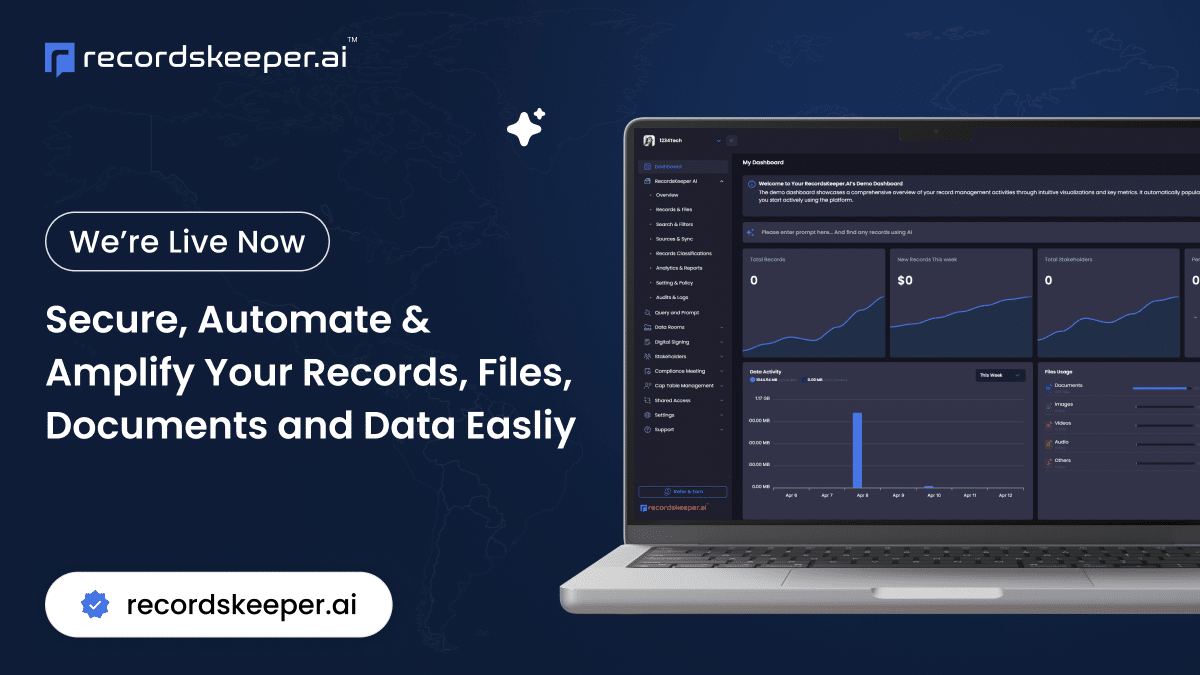As the world of healthcare continues its rapid transformation, Electronic Medical Records (EMR) systems have become indispensable tools for healthcare providers. Navigating the sea of options to find the best EMR software can be daunting. I’ve dedicated myself to understanding this landscape, combining AI and blockchain at RecordsKeeper.AI, which has opened my eyes to the nuanced needs of record-keeping professionals. Allow me to share insights and analysis that will guide you in choosing the most fitting EMR software for 2024.
The Evolution of EMR Systems
Over the years, EMR systems have evolved from basic digital versions of patient charts to robust platforms that integrate seamlessly with EHR systems. These systems not only help medical practitioners maintain accurate patient records but also ensure compliance and improve patient outcomes. Let’s explore how today’s top EMR solutions distinguish themselves in the ever-competitive healthcare IT market.
Unveiling the Best EMR Software: Key Features to Consider
When assessing the best EMR software, several critical factors come into play, like compliance, usability, AI integration, and pricing. Choosing an EMR system isn’t just about short-term benefits. It’s about aligning with a solution that complements your long-term strategic goals.
1. Compliance Management
Healthcare compliance is non-negotiable. The best EMR solutions come equipped with built-in compliance management features such as GDPR and HIPAA alignment to protect patient data. Compliance isn’t merely about avoiding penalties; it’s about safeguarding patient relationships and trust.
2. User-Friendly Interface
Ease of use is paramount. The most sophisticated technology is only as good as one’s ability to operate it. A user-centric interface reduces the learning curve, enhances workflow efficiency, and facilitates quick data retrieval. Naturally, this results in better patient care.
3. AI Integration
The power of AI in EMR is game-changing, offering predictive analytics, automated documentation, and advanced decision support. AI integration not only reduces administrative burdens but also improves diagnostic accuracy by leveraging data-driven insights.
Comparing the Top EMR Solutions for 2024
Every year, I delve deep into the world of EMR and EHR systems to identify the top-ranking solutions. Below, I offer a concise comparison spotlighting the potential of each to help you make an informed decision for your healthcare practice.
1. Epic Systems
Widely regarded as a leader in the industry, Epic Systems has consistently topped rankings due to its comprehensive features and robust user base. The platform excels with its patient portal, interoperability, and extensive integration capabilities. However, it’s essential to assess whether its complexity matches your specific needs.
2. Cerner Corporation
Cerner has built its reputation on providing individualized care solutions. Its strength lies within its intuitive data analytics and population health management modules. Cerner’s versatility in adapting systems to fit diverse healthcare settings sets it apart.
3. Allscripts
Allscripts is known for its innovative approach, adopting open APIs for seamless integration. It provides robust patient engagement tools and revenue cycle management, making it an attractive option for practices focused on financial health as well as patient care.
4. Athenahealth
Athenahealth stands out due to its cloud-based technology, which facilitates flexible access and low infrastructure costs. This solution is known for its user-friendly design and strong billing capabilities, streamlining operations for outpatient services.
5. Meditech
If you’re on the lookout for a cost-effective yet comprehensive option, Meditech offers a legacy of reliability balanced with modern, interoperable capabilities. Its flexibility allows adaptation to different practice sizes and specialties.
Choosing the Right EMR for Your Practice
It’s crucial, as we delve into this new era of healthcare technology, to embrace a tailored approach when selecting an EMR system. Considerations should include your practice’s size, specialty needs, and technical infrastructure. Whether you’re drawn by advanced features or cost-effectiveness, the key is to marry these with your long-term vision.
With the right solution in place, healthcare providers aren’t just improving internal efficiencies; they’re enhancing the overall patient experience.
Conclusion: Empowering Your Choice
As an advocate for efficiency and compliance through technology, it’s essential to equip record-keeping professionals with cutting-edge tools. The future of EMR systems lies in their ability to adapt and grow alongside advancements in AI and data integration.
Stay tuned for more insights and deep dives into leveraging technology for healthcare. Follow me and the work we’re doing at RecordsKeeper.AI for pioneering solutions that transform how records are handled. Together, we can elevate healthcare to new heights by making informed choices today.








